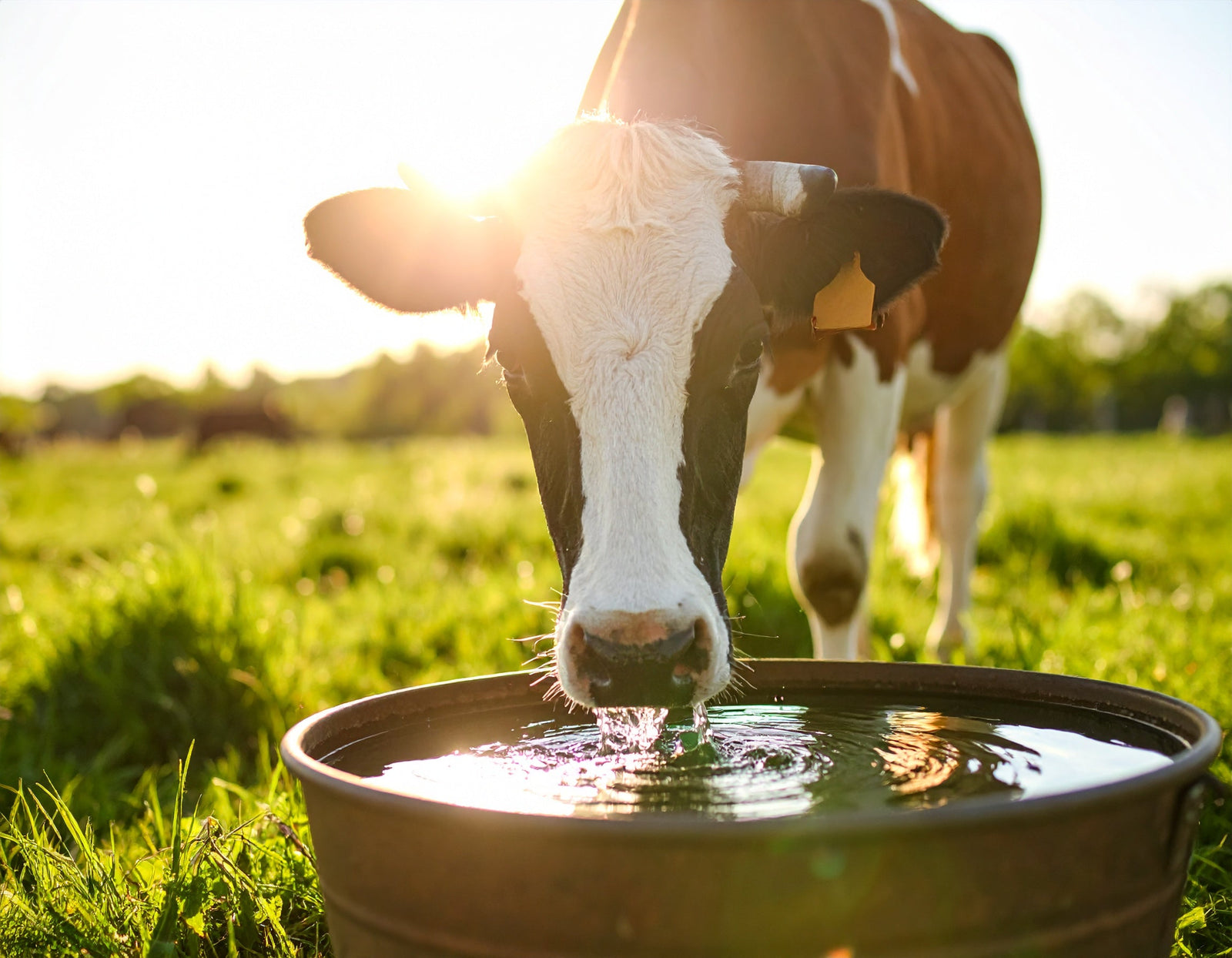In summer temperatures combined with high humidity, heat stress can quickly strike – often from 20 °C. Especially in dairy cows, this directly affects production, resistance, and welfare. In this blog, we explain what to watch out for, how much water your animals really need, and how to adjust your drinking water supply accordingly.
What exactly is heat stress?
Heat stress occurs when the temperature and humidity rise so high that animals can no longer properly regulate their body temperature. This causes additional stress on the body and can lead to health problems.
Research shows that a temperature of 20 degrees Celsius with a humidity of 60 to 80 percent can already cause mild stress in high-producing cows. At 30 degrees Celsius and a humidity of 80 percent, the stress can even become severe. This means that your animals are not only uncomfortable, but their milk production drops significantly, and they become more susceptible to disease.
A handy chart from the National Animal Diseases Information Services (NADIS) shows exactly which combinations of temperature and humidity you need to watch out for.

Source: National Animal Diseases Information Services
How much water do cows need in warm periods?
Water is the most important way for your animals to regulate their body temperature and to counteract heat stress. An adult dairy cow weighing 650 kilos with a milk production of 40 kilos per day needs about 110 liters of water under normal conditions. But during periods of heat stress, this need can double to as much as 200 liters per day!
Dairy cows and young stock need to be able to consume a lot of water in a short time. Therefore, it is advisable to have at least one drinking point per group where at least 15 liters of water per minute is available. This prevents too much competition and ensures that cows drink as much as they need.
The right drinking water supply in the pasture
Place the drinking troughs about 10 meters apart and not in the shade or in a dead-end part of the pasture. Although you might think animals prefer to drink in the shade, this often leads to jostling and dominant behavior, causing some animals to drink too little. Also, at temperatures above 28 degrees, animals move less and seek shade. If you don't have tap water available, a solar drinking system is a smart solution to always offer fresh water.
Practical tips to prevent heat stress
Sufficient clean and cool drinking water is one of the most important means to limit heat stress. Other things to consider:
- Check daily that the drinking troughs are clean and free of algae or dirt.
- Keep the temperature of the drinking water around 17 degrees, so the water does not become too warm.
- Refresh the drinking troughs at least twice a week.
- Ensure that the drinking troughs are easily accessible, for example, right after the milking parlor exit.
Heat? No stress, just happy cows!
By providing sufficient clean and cool water, creating multiple drinking points, and ensuring the supply speed, you help your cows withstand the summer heat without any problems.
Looking for water troughs and Accessoiries? Check out here our range.
